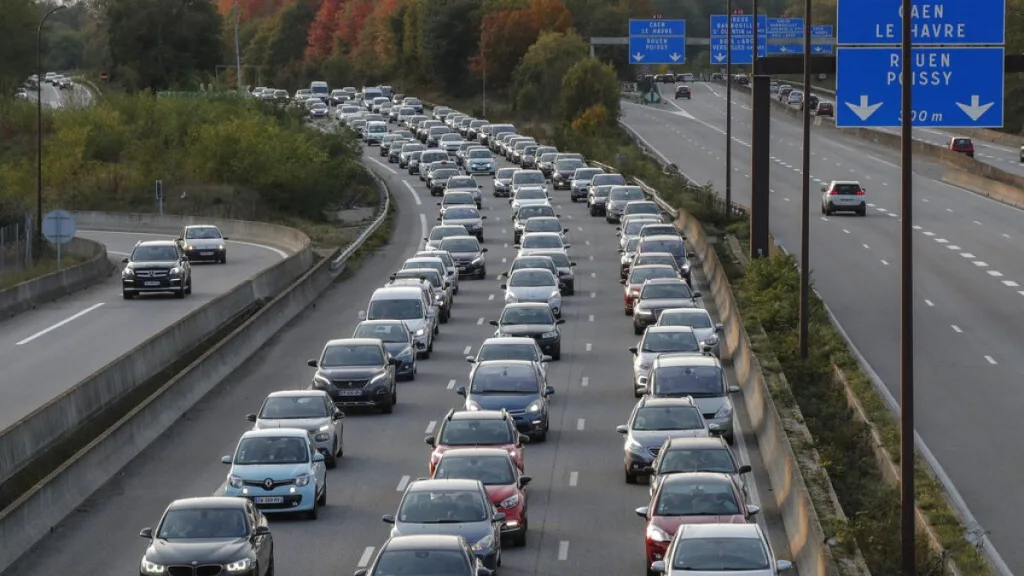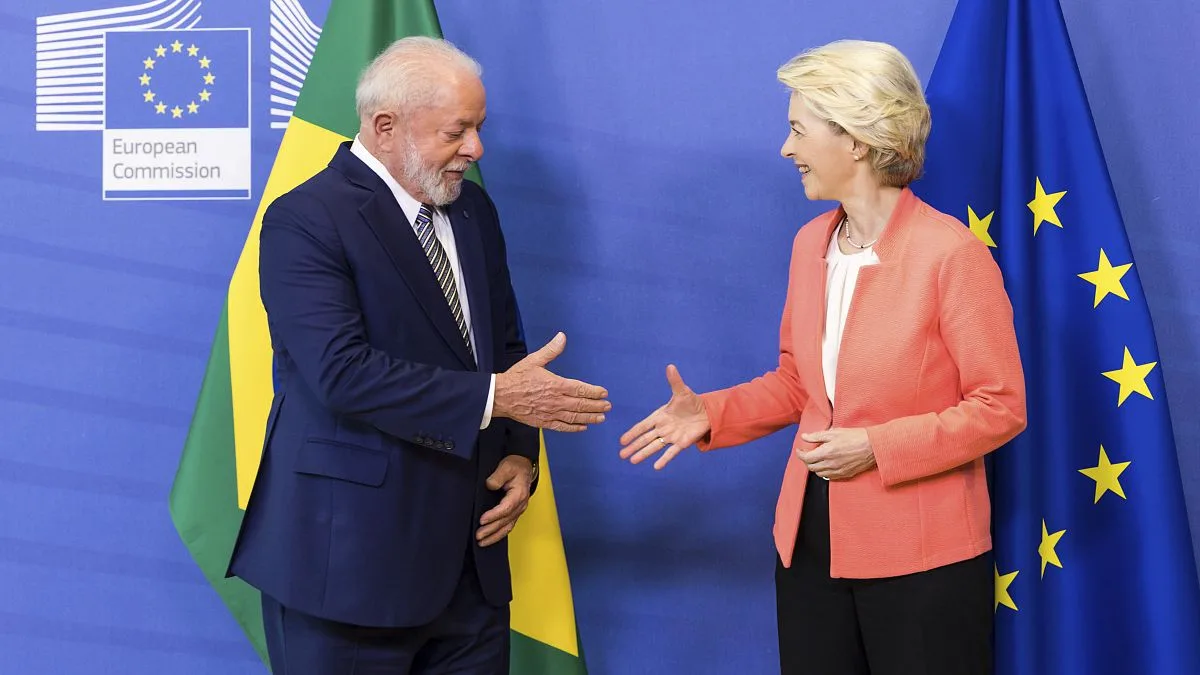The European Commission has announced the volume of emissions allowances to be auctioned for the inaugural year of a potentially contentious initiative that may lead to increased fuel prices.
The cap on greenhouse gas emissions from fossil fuels used in road transport and building heating will be set at just over one billion tonnes per year. Suppliers will compete in a new carbon market for emissions allowances within a framework that is expected to raise fuel prices unless governments take prompt steps to reduce demand.
Set to commence in 2027, this scheme resembles the EU emissions trading system (ETS) introduced nearly two decades ago, which mandates that factory and power plant operators pay for every tonne of carbon they emit.
In a decision made on November 3, the European Commission established the cap for the initial year, amounting to just over one billion tonnes of CO2 equivalent, reflecting a significant commitment. Total EU emissions for the previous year were approximately 3.2 billion tonnes, showcasing an 8% reduction.
The ETS has been pivotal in accelerating the transition from coal to renewables like wind and solar energy, although its effect on heavy industries has been subdued due to generous free allowances. The new ETS2 targets the transportation and building sectors, areas where emissions have persistently remained high.
According to the Buildings Performance Institute Europe, a prominent think tank, household emissions decreased only 12% from 2015 to 2022, despite numerous EU regulations aimed at improving energy efficiency. Notably, road transport accounts for about 20% of the EU’s overall emissions and has seen limited improvement recently, diverging from the overall downward trend.
To align with the EU’s 2030 climate targets, the emissions cap will reduce annually, aiming for a 42% decrease in these two sectors compared to 2005 levels, as articulated by Eleanor Scott from Carbon Market Watch, a Brussels-based think tank.
“The ETS2 initiative is crucial for achieving the EU’s 2040 climate goals, as it is designed to make renewable energy relatively cheaper than fossil fuels while generating vital funding for social climate policies,” Scott emphasized.
Next year, the European Commission plans to propose a legal target for emissions reductions by 2040, with Climate Commissioner Wopke Hoekstra asserting that a reduction of at least 90% below 1990 levels is recommended by scientific advisors.
“Without the ETS2, there is no alternative to reduce emissions in buildings and road transport at the necessary rate,” she noted.
Potential Costs and Implications
However, predicting the impact of ETS2 on fuel prices and heating expenses remains challenging. For instance, a carbon price of around €45 per tonne of CO2 could add approximately 10 euro cents to the price of a liter of petrol. Yet, this carbon price could escalate significantly if efforts to enhance home efficiency and shift to electric mobility do not keep pace with the decreasing supply of emissions allowances.
Lawmakers are conscious of the potential for public unrest, reminiscent of the ‘yellow vests’ protests in France sparked by a 2018 proposal for a green fuel tax. To mitigate these concerns, a parallel Social Climate Fund (SCF) has been created to allocate a portion of the anticipated ETS2 auction revenues to aid vulnerable households.
The European Commission recognizes the likelihood of a negative public response as the ramifications of its Green Deal legislation become more evident, particularly regarding fuel costs.
“Concerns about the social impact of ETS2 are legitimate, and the best defense against high prices is for member states to realize that it is not a panacea,” Scott cautioned. “Member states need to act now to implement strong supportive measures to lower emissions, minimize demand for allowances once the market launches, and alleviate upward pressure on prices.”
In a previous interview, Peter Liese, a center-right lawmaker who guided the ETS legislation through the European Parliament, affirmed his commitment to the law, despite leading opposition against other facets of environmental policies within his party.
Nonetheless, certain indicators suggest that governments may be hesitant to fully implement the scheme. As of July, the European Commission initiated infringement proceedings against nearly all EU member states, except Austria, for failing to incorporate the revised ETS Directive into their national laws by the required deadline.
For Scott, thoughtful social climate strategies that feature extensive public engagement would represent a productive starting point. The SCF is expected to deliver €86.7 billion in targeted assistance to those experiencing energy poverty and facing high transport costs. “However, responsible spending of the remaining ETS2 revenue, which could exceed €200 billion at a €45 allowance price, will be crucial for ensuring equity in the system and securing public backing,” she stated.
Photo credit & article inspired by: Euronews



